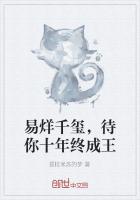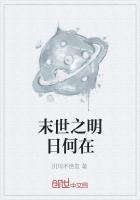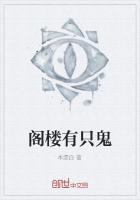For the Lord On the whirlwind is abroad;
In the earthquake he has spoken;
He has smitten with his thunder The iron walls asunder, And the gates of brass are broken!
--Whittier With bray of the trumpet, And roll of the drum, And keen ring of bugle The cavalry come:
Sharp clank the steel scabbards, The bridle-chains ring, And foam from red nostrils The wild chargers fling!
Tramp, tramp o'er the greensward That quivers below, Scarce held by the curb bit The fierce horses go!
And the grim-visaged colonel, With ear-rending shout, Peals forth to the squadrons The order, "Trot Out"!
--Francis A. Durivage.
THE CHARGE AT GETTYSBURG
The battle of Chancellorsville marked the zenith of Confederate good fortune. Immediately afterward, in June, 1863, Lee led the victorious army of Northern Virginia into Pennsylvania. The South was now the invader, not the invaded, and its heart beat proudly with hopes of success; but these hopes went down in bloody wreck on July 4, when word was sent to the world that the high valor of Virginia had failed at last on the field of Gettysburg, and that in the far West Vicksburg had been taken by the army of the "silent soldier."At Gettysburg Lee had under him some seventy thousand men, and his opponent, Meade, about ninety thousand. Both armies were composed mainly of seasoned veterans, trained to the highest point by campaign after campaign and battle after battle; and there was nothing to choose between them as to the fighting power of the rank and file. The Union army was the larger, yet most of the time it stood on the defensive; for the difference between the generals, Lee and Meade, was greater than could be bridged by twenty thousand men. For three days the battle raged. No other battle of recent time has been so obstinate and so bloody. The victorious Union army lost a greater percentage in killed and wounded than the allied armies of England, Germany, and the Netherlands lost at Waterloo. Four of its seven corps suffered each a greater relative loss than befell the world-renowned British infantry on the day that saw the doom of the French emperor. The defeated Confederates at Gettysburg lost, relatively, as many men as the defeated French at Waterloo; but whereas the French army became a mere rabble, Lee withdrew his formidable soldiery with their courage unbroken, and their fighting power only diminished by their actual losses in the field.
The decisive moment of the battle, and perhaps of the whole war, was in the afternoon of the third day, when Lee sent forward his choicest troops in a last effort to break the middle of the Union line. The center of the attacking force was Pickett's division, the flower of the Virginia infantry; but many other brigades took part in the assault, and the column, all told, numbered over fifteen thousand men. At the same time, the Confederates attacked the Union left to create a diversion. The attack was preceded by a terrific cannonade, Lee gathering one hundred and fifteen guns, and opening a fire on the center of the Union line. In response, Hunt, the Union chief of artillery, and Tyler, of the artillery reserves, gathered eighty guns on the crest of the gently sloping hill, where attack was threatened. For two hours, from one till three, the cannonade lasted, and the batteries on both sides suffered severely. In both the Union and Confederate lines caissons were blown up by the fire, riderless horses dashed hither and thither, the dead lay in heaps, and throngs of wounded streamed to the rear. Every man lay down and sought what cover he could. It was evident that the Confederate cannonade was but a prelude to a great infantry attack, and at three o'clock Hunt ordered the fire to stop, that the guns might cool, to be ready for the coming assault. The Confederates thought that they had silenced the hostile artillery, and for a few minutes their firing continued; then, suddenly, it ceased, and there was a lull.
The men on the Union side who were not at the point directly menaced peered anxiously across the space between the lines to watch the next move, while the men in the divisions which it was certain were about to be assaulted, lay hugging the ground and gripping their muskets, excited, but confident and resolute. They saw the smoke clouds rise slowly from the opposite crest, where the Confederate army lay, and the sunlight glinted again on the long line of brass and iron guns which had been hidden from view during the cannonade. In another moment, out of the lifting smoke there appeared, beautiful and terrible, the picked thousands of the Southern army coming on to the assault. They advanced in three lines, each over a mile long, and in perfect order.

